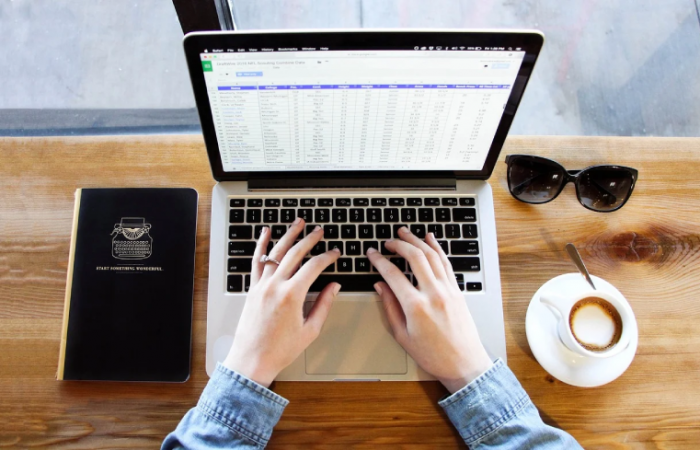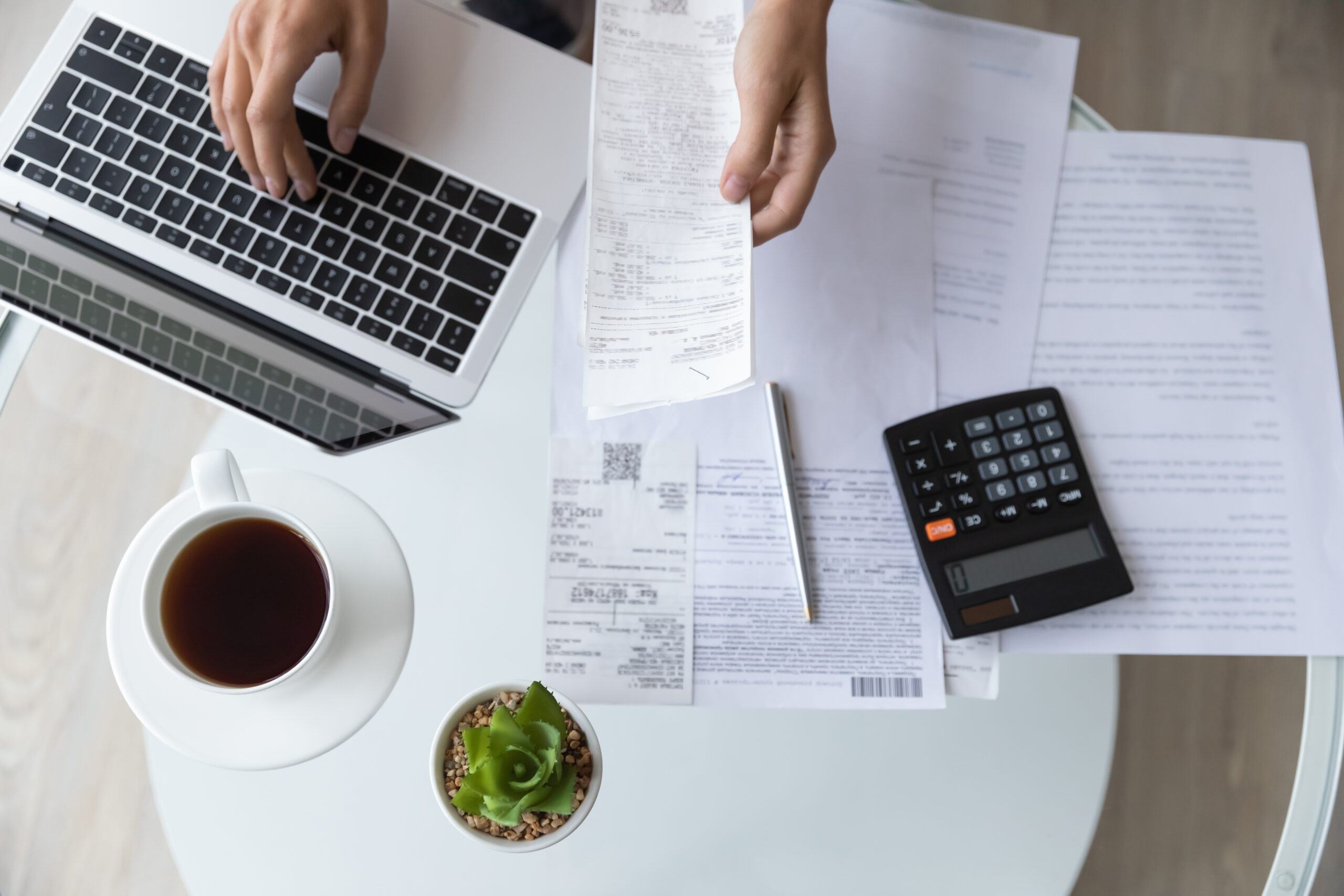How to Choose a Sole Trader Accountant

Once you’ve made the leap to going self-employed, choosing the right accountant should be high on your list of priorities. As a sole trader, you’ll need to start to understand the differences between your business finances and your personal finances, get your head around income tax and national insurance, and think about what your sole trade accounts will look like as your business grows.
You’ll need an accountant for sole trader that understands the stresses and challenges you face as sole traders, as well as having that human element to advise you on everything from how much tax to pay, how to pay income tax, and looking after your business transactions.
Types of Business Structures
Even though you may have already decided to start trading as a sole trader, it’s worth considering the different sorts of business structures that exist.
- Sole Trader
- Limited Company
- Partnership (unincorporated)
- Limited Liability Partnership (incorporated)
There are four main types of business structures sole traders may select from when they begin to register their business with Companies House if they have decided to move from a sole trader. Sole traders can transfer to be a limited company, a partnership, a Ltd Company, or an LLP. If a sole trader is considering trading as a limited company, they can choose to be either a “private” limited company or “public” limited company. A private limited company is the best option for single-person businesses, small businesses, and for businesses where the owner doesn’t want public accountability for the actions of the business. Public limited companies are more suitable for larger businesses where shareholders are involved in the running of the company – there are also minimum requirements to meet if you decide to become a PLC, and 99% of businesses would not be able to choose this structure!
If you want to start up your own business without forming a Limited Company, then you will need to register your business as an unincorporated organisation like a sole trader or partnership. Either option has its benefits and drawbacks depending on your circumstances and how you would like to run your business. Keep in mind that any debts that you take on as an unincorporated business will be your personal debts and will be personally owed by you. If you have any creditors or loans, these will be your personal debts as well. The benefit of an unincorporated business is that it is not legally defined as a limited company, so you are able to create your own arrangement for the management of the business. You do not need to file paperwork with Companies House, there is no public accountability, and you are responsible for paying any taxes yourself.

What is a Sole Trader?
A Sole Trader is a self-employed individual who is legally defined as a person who has no partners or employees and runs their business alone. Usually, you will register as a sole trader to run your own business (such as a consultancy, for example) and work for yourself. If you decided to start your own business as a sole trader, then you will be responsible for all the decisions regarding the running of your business.
In order to register as a Sole Trader, your trading name must be different from that of another company or person. You can not use an already registered company’s name in case you end up accidentally breaching copyright or intellectual property laws, (for example, you could not use ‘Luxury Industries’ in case it confused customers with ‘Luxury Industry Plc’). You cannot call yourself something which could be deemed offensive or impersonate someone else’s name or brand. The only condition on registration is that you must tell HMRC what you are trading under within 12 weeks of starting trading.

Disadvantages and advantages of a Sole Trader
Some of the advantages of registering as a Sole Trader include:
You can get started quickly
It is easy to set up and you can be trading within a relatively short period of time. You will usually be able to register online and the business number is free, so there are no significant costs involved. Once you have decided on a name for your new venture, you just need to make sure that it is not already in use. Once your business has been launched, work can begin on marketing and promotion using social media such as LinkedIn and Facebook, traditional methods (such as leaflets), or an online promotion campaign via Google Adwords or Google Display Network.
You manage everything
As a Sole Trader, you have total responsibility for the running of your business. You will have to promote it, get it set up and running, build up your client base and manage dealings with banks and other financial institutions.
You can work from home
As a Sole Trader, you can decide to run your business from home rather than renting out commercial premises. It is important to note that if you choose to trade from home, you are not allowed to use more than one room as an office; the rest of the space must be used as a living area. The definition of a living area is quite broad and includes anything that is usually regarded as part of a private house. For example, if your kitchen/dining room/sitting room is on ground floor level in front of or adjoining an entrance door into the house then this would be regarded as ‘living accommodation’. Working from home means that as a sole trader you can also claim tax relief for ‘Use of Home as and Office’.
Disadvantages of a Sole Trader
All the responsibility
As a Sole Trader, you have total responsibility for running your own business. You have to promote it and get it started, build up your client base and manage dealings with banks and other financial institutions. All of this is hard work and can be very stressful at times. It is not the best choice if you prefer to delegate tasks to others or just want someone to do the hard work for you!
High overheads
As a Sole Trader, you are responsible for all costs. This means that for most people starting out on their own as a Sole Trader, there will be extra costs involved because they need to buy equipment such as a computer and car or van (regardless of whether these are used solely for business use). There may also be costs incurred from having to advertise your services (including transport/postage costs). All of these things can add up quickly and create high overheads. This can make it difficult when you first start out as a sole trader and you may find it hard to have money left over at the end of the month to put away in case of any unforeseen problems.
No extra support
As a Sole Trader, you will be entirely responsible for your business. This means that if something goes wrong and you need help from someone else, there is no company or person anyone to turn to for advice or support. You are also unlikely to get any financial support (such as interest-free loans) from banks due to the high risk involved in lending money out as a Sole Trader – most banks will expect you to have an overdraft facility instead. There may be occasions where you could use an overdraft with another bank, but this can result in paying lots of extra fees so should only be used as a last resort if there are no other options available.
Tax Responsibilities of a Sole Trader
When you become a Sole Trader, you are responsible for paying all taxes and National Insurance Contributions yourself. This includes Income Tax, National Insurance Contributions, Pay As You Earn (PAYE) if you take on any staff, and VAT (if applicable to your business).
You should keep accurate records which should include:
Invoices: You must keep a record of every invoice/bill that you send out – who it was sent to, what it was for and when it was issued. There is no specific format for this but it should contain everything necessary such as order numbers, the amount payable, and method of payment. Bear in mind that HMRC’s Making Tax Digital rules will be in place soon, so there is extra responsibility to get your head around!
Payments: All payments that are made should be recorded so that you can see where all your money is going. This can include money that has been paid to you and money which you have sent out (such as invoices and payments for bills). However, this shouldn’t just be limited to bank payments – cash payments should also be recorded as these will form part of your sole trader accounts. It’s also a good idea to record when cheques were issued so that you know how much time is lost between issuing a cheque and the cheque being cashed.
You’ll have to submit your taxes to HMRC on a regular basis via the self-assessment tax return. At the moment this is only done once a year, but very soon sole traders will have to make 5 submissions a year to HMRC for their taxes.
If you’re already a little nervous about your self-assessment tax return, then having to do some form of self-assessment five times per year is not great news for you! We’d advise sorting out your sole trader accounting by using an accountant that can handle your sole trader accounts and submit all of your self-assessment information for you. The added benefit is that they’ll also produce your profit and loss account, tell you how and when to pay tax, look at your tax efficiency and help with identifying business expenses.
Tips for Choosing a Sole Trader Accountant
No matter how long you’ve been in business, getting an accountant can be a daunting task. It’s important to choose an accountant that you trust because they are going to have an impact on your business’ success or failure. Here are a few tips to help you choose the right one for your needs:
Do background checks
Take a look at your prospective accountant’s website and see if they are posting up reviews from their clients. You can also check sites like TrustPilot and Reviews.co.uk to see what their clients say.
How long has the firm you’re interested in been running? If they have been going for years then it’s likely that they have a good reputation as accountants, but if they are new then check the experience of the key people within the firm to make sure that they’ll be able to meet your needs for the accounting services you want.
If you wanted to take a really deep dive you could even check the company accounts at Companies House and find out who the Directors are!

Make sure your accountant is qualified
Any sole trader business looking for an accountant should make sure that they’re using someone qualified. You’ll want to look out for the following things on their website:
ACCA – Association of Chartered Certified Accountants
ICAEW – Institute of Chartered Accountants of England and Wales
AAT – Associate of Accounting Technicians
ATT – Association of Tax Technicians
CIMA – Chartered Institue of Management Accountants
ICAS – Institute of Chartered Accountants of Scotland
You may also want to check their terms and conditions to make sure that they have professional indemnity insurance.

Look for an accountant with relevant expertise
Qualifications are one way to check that your prospective accountant is qualified, but it’s also extremely important to check their experience. Believe it or not, some chartered accountants have never done a self-assessment tax return! Depending on where they have worked and what their roles have been in the past will dictate how much they are able to help a sole trader business or a self-employed business. There are accountants that specialise in sole trader accounting, so make sure you look out for that in their bios.
What kind of businesses have they worked with? Are they passionate about helping the self-employed? Do they already have a large client base of sole traders?
It’s good practice to find out about the businesses that your accountant has worked with before and how the accountant dealt with them; this will give you a good idea of what their strengths and weaknesses are. If your requirements differ greatly from the type of business that they usually deal with, it may be best to look elsewhere for someone more suitable who can look after all your needs.

FAQS on how to Choose a Sole Trader Accountant
How much will your accountant cost?
An accountant’s fee for sole traders are usually less expensive than fees for Limited Companies – because sole traders tend to have slightly less complex compliance needs. That’s not to say that sole traders don’t experience all the stresses and strains of running a business; just that the work that is submitted to HMRC for sole traders is less onerous than that for a Limited Company.
A usual fee for a set of self-employed or sole trader accounts is around £350 -£1000 per year depending on the complexity of the business and how organised the business owner is!
What services are included?
When you go self-employed and start looking for an accountant you’ll need to check which services are included in your fees.
Most accountants will include the tax preparation and accounts preparation as part of the package, but most do not include bookkeeping as standard – instead, they’ll likely ask you to keep your own records using online accounting software (spoiler alert – Mazuma do all the bookkeeping too at no extra cost!).
You may also want to check if their fees are fixed, or if you’ll suddenly be presented with a bill if you call up and ask about business expenses!
Find out what software the accountant uses
Some accountants only work with one sort of software, while others work with many different types. Mazuma doesn’t require you to use any software in order to access our accountancy services or we can provide you with our own online accounting package.
The moral of the story here is that all accountants are different and you need to work with someone who suits you and your self-employed business. If you hate using online accounting software then a tech-heavy firm may not be right for you!
Communication
Do you prefer informal whatsapps or a formal meeting? If you’ve got a quick query about a business expense, do you want to book a slot to speak to someone or just fire off a quick email?
Do you need a dedicated accountant? Or is the cost of a dedicated accountant a little bit over-kill for the level of support that you need? This may be especially true if you just need a basic self-assessment each year and not too much advice.
It’s important that you consider the culture and communication style of the firm you pick so that it best aligns with your own goals as a small business owner.
Get someone who’s proactive about saving you money
Your own dedicated accountant should be able to make suggestions about tax efficiency, and business expenses that assist in bringing down that tax bill on your self-assessment. Being tax efficient is one of the most important things you can do for yourself when you are self-employed. It’s not about doing anything untoward on your self-assessment, but it’s about making sure that you’re paying the correct amount of tax for you.






